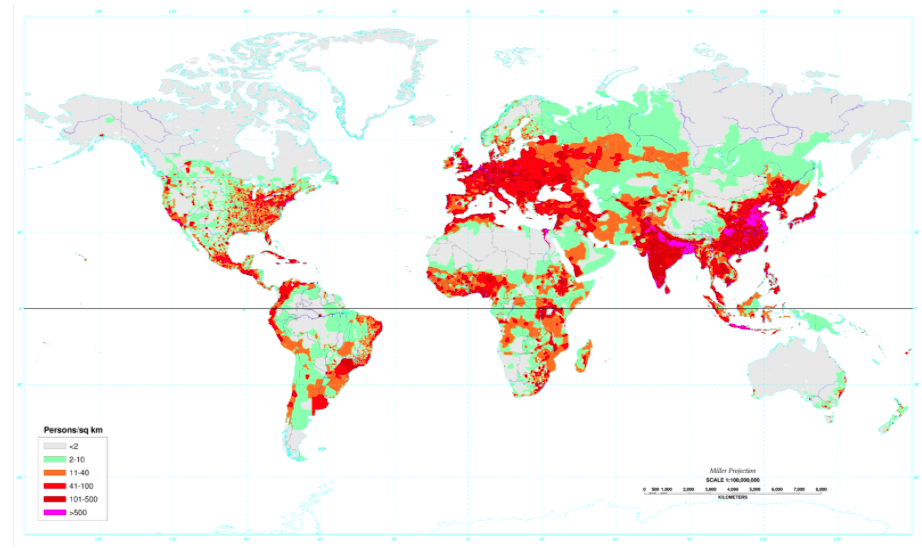Question Your World: How's the Population Doing?
Happy new year everyone! As our global family kicks off a brand new year, let's take a moment to get a snapshot of our big family by asking the big question: How’s the population doing?
As humanity ushers in the year 2019, 7.7 billion people live on Earth. A few nations hold a huge chunk of our family. China and India still lead the way with both countries hosting over 1.3 billion people each! The USA, Indonesia, and Brazil complete the remaining countries in the Top 5 most populous nations. All of these nations are growing in number. The next milestone for our population is predicted to be in 2023 as we hit 8 billion humans on Earth.
This is a lot of people and growing. Our impact on the planet is of course of great importance here! Each one of us adds to the compounding impact humanity makes on energy, food, transportation, wastes, and beyond. Nearly half of us live in urban areas. For dense living, it just does not get any bigger than a megacity, an urban area with a population over 10 million. Just a few years back, in 2014 there were 28 megacities on Earth. Today there are 46, thanks to our rapidly growing human family.
A growing population means a greater impact on the environment and a much larger need for precious resources. Last year alone a little over half of our population, the amount of consumers on Earth, created over 2 billion tons of waste, much of it directly due to agriculture. Nearly one third of all the food produced around the world is wasted. This waste is a result of inefficient production practices, consumption waste, and overconsumption. A third of our food adds up a lot quicker than one would imagine. In fact, well over 2 billion tons of food is wasted every single year by humans around the globe. Not only does this cause an access and resource imbalance for those unable to afford food, but this also passes the food costs on to the consumer. As of now, we waste about a trillion dollars’ worth of food and it simply ends up in the trash.
Nearly half of all the harvested crops on Earth end up in the garbage. 78% of overall waste is associated with the livestock industry. In this study, scientists reported that 1.08 billion tons of harvested crops are used to feed livestock alone. This works out to around 840 million tons worth of food loss. Not only is this bad on a humanitarian and economic perspective, but it also has negative impacts in terms of climate change. As all those literally tons of food piles begin to decompose in landfills, they release methane. This is a natural gas, but the concentration and release of this much methane is not a part of the natural cycle. This is another human-caused contribution to the release of heat trapping gases into the atmosphere. And this is all just food waste. Industrial, commercial, and other wastes are to be factored in on top of all of this. As the population grows, this will become a larger and larger concern to scientists and urban planners around the globe. As consumers, we’re consuming more than ever as well. At the rate we're going, we would literally need two Earths to give every human access to the things that we Americans have.

Some experts are predicting that by 2040, just a little over two decades from today, there could be up to 9 billion of us which seems doable considering that 250 humans are born every single minute. But hey, a new year gives us new opportunities to explore these issues and use the common language of science to address our human family's needs.
Better energy options, using regional crops, lowering food miles, educating and equipping citizens with the necessary tools for jobs, smarter urban planning, family planning, and a greater movement towards mass transportation are all very important to address how we will usher in a greater population while lowering our impact on the environment.
Clearly, a growing population is going to require a growing number of science headlines. We're looking forward to covering those science stories with you all year long. From all of us to all of you, Happy New Year!